-
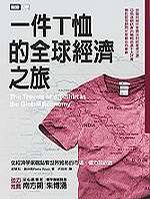
一件T恤的全球經濟之旅
-
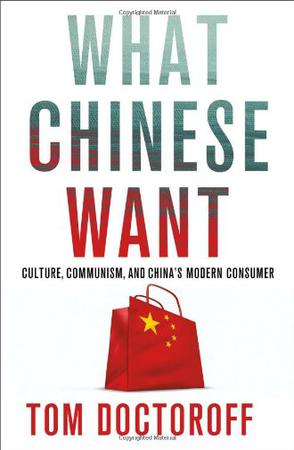
What Chinese Want
Today China is a critical player in the global marketplace, but there is still widespread confusion about what really makes the country tick - even the Chinese have difficulty explaining their own "Chineseness" to outsiders. In What Chinese Want, China expert Tom Doctoroff posits that China’s distinguishing traits explain the country in profound ways, including: *Connection to History: For thousands of years, the impulses and conflicts within Chinese civilization have driven its people’s behavior and choices. More than any other nationality, they are driven by their past history as much as by their intense focus on the future. This manifests itself in a profound belief in their country's stability and an intense national pride that often drives business decisions. *A Complex View of Morality: As evidenced by their sticky human rights issues, rampant piracy, and endemic government corruption, the Chinese have a significantly higher tolerance for certain things the West would consider wrong. Doctoroff puts these differences in context so that the reader can understand their nuances and impact on business and international relations. *Family Over the Individual: Whereas in America the individual is a prized source of originality, freewill, and consumer choice, in China the focus is squarely on the family and the larger society. This difference can be seen in the educational system, entrepreneurial activity, and many other key aspects of Chinese society.From the new generation’s embrace of Christmas to the secrecy of industry titans; from the government’s meticulously incremental approach to currency appreciation to the middle class’s fixation with luxury brands, Doctoroff explains the mysteries of modern China for those looking to enter the market in a culturally sensitive and effective way. -
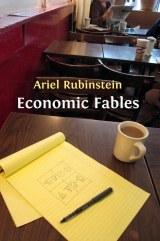
Economic Fables
"I had the good fortune to grow up in a wonderful area of Jerusalem, surrounded by a diverse range of people: Rabbi Meizel, the communist Sala Marcel, my widowed Aunt Hannah, and the intellectual Yaacovson. As far as I'm concerned, the opinion of such people is just as authoritative for making social and economic decisions as the opinion of an expert using a model." Part memoir, part crash-course in economic theory, this deeply engaging book by one of the world's foremost economists looks at economic ideas through a personal lens. Together with an introduction to some of the central concepts in modern economic thought, Ariel Rubinstein offers some powerful and entertaining reflections on his childhood, family and career. In doing so, he challenges many of the central tenets of game theory, and sheds light on the role economics can play in society at large. Economic Fables is as thought-provoking for seasoned economists as it is enlightening for newcomers to the field. -
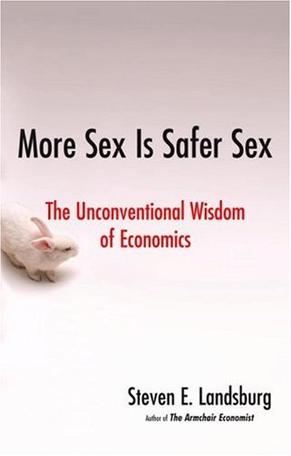
More Sex Is Safer Sex
Steven Landsburg's writings are living proof that economics need not be "the dismal science." Readers of The Armchair Economist and his columns in Slate magazine know that he can make economics not only fun but fascinating, as he searches for the reasons behind the odd facts we face in our daily lives. In More Sex Is Safer Sex, he brings his witty and razor-sharp analysis to the many ways that our individually rational decisions can combine into some truly weird collective results -- and he proposes hilarious and serious ways to fix just about everything. When you stand up at the ballpark in order to see better, you make a rational decision. When everyone else does it too, the results, of course, are lousy. But this is just the tip of the iceberg of individual sanity and collective madness. Did you know that some people may actually increase the spread of sexually transmitted diseases when they avoid casual sex? Do you know why tall people earn more money than shorter competitors? (Hint: it isn't just unfair, unconscious prejudice.) Do you know why it makes no sense for you to give charitable donations to more than one organization? Landsburg's solutions to the many ways that modern life is unfair or inefficient are both jaw-dropping and maddeningly defensible. We should encourage people to cut in line at water fountains on hot days. We should let firefighters keep any property they rescue from burning houses. We should encourage more people to act like Scrooge, because misers are just as generous as philanthropists. Best of all are Landsburg's commonsense solutions to the political problems that plague our democracy. We should charge penalties to jurors if they convict a felon who is later exonerated. We should let everyone vote in two congressional districts: their own, and any other one of their choice. While we're at it, we should redraw the districts according to the alphabetical lists of all voters, rather than by geography. We should pay FDA commissioners with shares of pharmaceutical company stocks, and pay our president with a diversified portfolio of real estate from across the country. Why do parents of sons stay married more often than parents who have only daughters? Why does early motherhood not only correlate with lower income, but actually cause it? Why do we execute murderers but not the authors of vicious computer viruses? The lesson of this fascinating, fun, and endlessly provocative book is twofold: many apparently very odd behaviors have logical explanations, and many apparently logical behaviors make no sense whatsoever. -
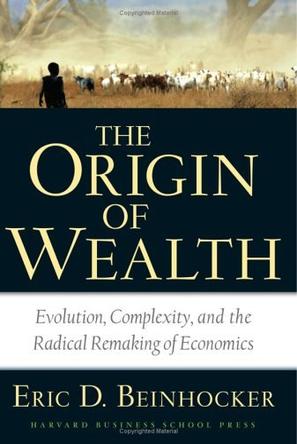
The Origin of Wealth
In the Origin of Wealth, Eric Beinhocker offers a thorough and convincing new way to think about economic growth and business management. The author begins by exploring the roots of modern economic theory and ultimately declares it outmoded and wrong. Instead, he suggests, markets and growth can best be explained by drawing on the emerging field of complexity economics: the study of markets and social systems as complex adaptive systems. Although biological metaphors in business have become familiar (i.e., organizations are living organisms), Beinhocker moves beyond metaphor to explain the revolutions in science that will inevitably change the way we think about economics, competition, and business. The Origin of Wealth raises important questions such as: How can one create strategy in uncertain and fast moving environments? Why is it hard for large organizations to be innovative and how should we organize for better results? What role should governments play in this new era? -

The Road to Serfdom
The Road to Serfdom remains one of the all-time classics of twentieth-century intellectual thought. For over half a century, it has inspired politicians and thinkers around the world, and has had a crucial impact on our political and cultural history. With trademark brilliance, Hayek argues convincingly that, while socialist ideals may be tempting, they cannot be accomplished except by means that few would approve of. Addressing economics, fascism, history, socialism and the Holocaust, Hayek unwraps the trappings of socialist ideology. He reveals to the world that little can result from such ideas except oppression and tyranny. Today, more than fifty years on, Hayek's warnings are just as valid as when The Road to Serfdom was first published.